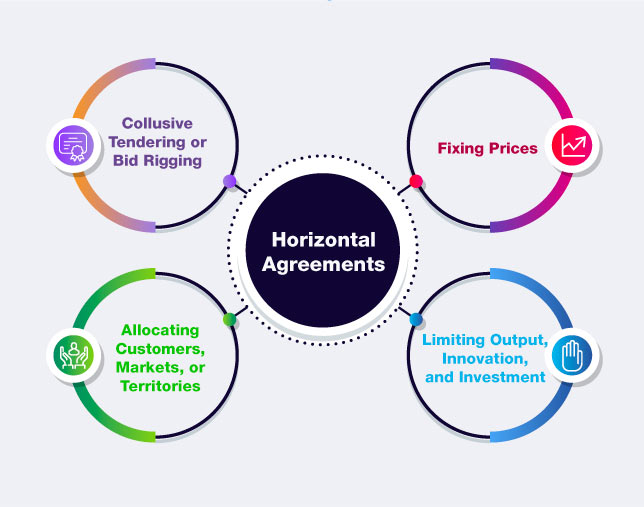COMPETITION LAW



Generally, hard-core cartels are the results of horizontal agreements. Examples of horizontal agreements are:

© CCP 2024, Competition Commission of Pakistan ©All rights reserved